Mission Possible: Fayette superintendent Caulk assures leadership institute students are top priority
Against a backdrop of poignant movie clips and supportive data, Superintendent Manny Caulk assured colleagues in Fayette County Public Schools that strong leadership will ensure students remain the district’s top priority. One of the main opportunities is preparing staff to teach 21st century students and to lead increasingly diverse schools. And one key is openness to personal growth.
“The time is now for us to change the world – to dream, believe, act, and achieve – and we’ve got to be willing to change ourselves,” Caulk said in the keynote that kicked off his inaugural Superintendent’s Leadership Institute (SLI). Dressed in a black suit and sporting dark shades and a throw-back briefcase, Caulk had entered the auditorium after a short video promo that played off a familiar franchise. His mantra?
“Mission: Possible.” “Working together, we’re going to make a difference for our students,” he said with confidence.
“We went with the movie theme to keep people connected,” said retired principal Schuronda Morton, who helped organize the week’s sessions. “We’re just pouring a foundation for what’s to come. As we move forward, we know the mission will be possible.”
Employees gathered earlier to pick up registration packets and catch up with friends over breakfast. Most then sat together as a school or department group to hear Caulk’s message. “It’s a good opportunity for everybody to get together and get on the same page to focus on what’s best practice for our students,” said Mark Sellers, program director at Martin Luther King Jr. Academy for Excellence.
Caulk noted that as with athletes, a district’s performance throughout the school year depends largely on off-season preparation, and he encouraged staffers to always lead with a plan. The SLI would flesh out Caulk’s Blueprint for Student Success: Achieving Educational Excellence and Equity for All, which he released in late May.
In his opening remarks, the superintendent paused several times to share scenes from movies like 2007’s “Freedom Writers,” and he directed attendees to briefly share with their neighbor as they discussed big-picture questions like “What’s the purpose of education?” Two school board members, Melissa Bacon and Daryl Love, suggested a public school education should provide tools for students to succeed in life and that FCPS needs to be more agile in adjusting to changes in society’s and students’ needs. Caulk agreed, saying it’s crucial to prepare today’s students to meet emerging global challenges with heightened problem-solving skills.
“All over the world, it’s competition because of globalization,” Caulk said. “For all of our students, education is not an option. We must educate all our students at a high level.”
While intangible elements like values, expectations, and attitudes about learners can hinder efforts to close achievement gaps, Caulk reiterated that progress can and will be made in FCPS. He urged his colleagues to see not challenges but opportunities, saying, “That mission is possible because of you.”
Anthony Muhammad, the CEO of New Frontier 21 Consulting, is known for his expertise in the areas of school culture and organizational climate. On Day 2 of the FCPS leadership institute, he opened with stories of his supportive mother and of four childhood friends who took divergent paths. He then called for attendees to remember why they chose this career field, saying, “The good news about education is that all of us come for the right reasons.”
The author of several books including “Overcoming the Achievement Gap Trap,” Muhammad encouraged the FCPS crowd to shift their mindset from an invitation (to learning) to a guarantee, and challenged schools to have a sense of urgency about reaching all children. “If we change our approach, maybe it’ll change the student outcome,” he said. “We have to change our thinking and change our practice to change our results.”
By: Tammy Lane

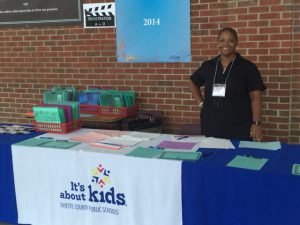
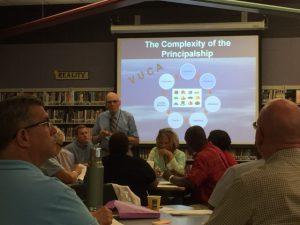
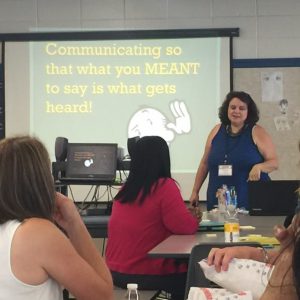
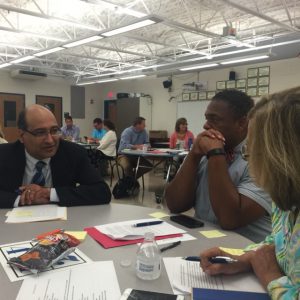
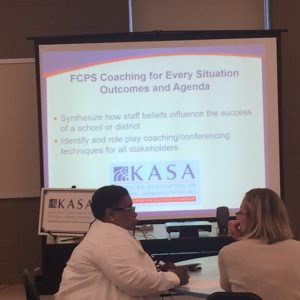

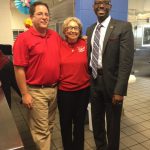 Next Post
Next Post